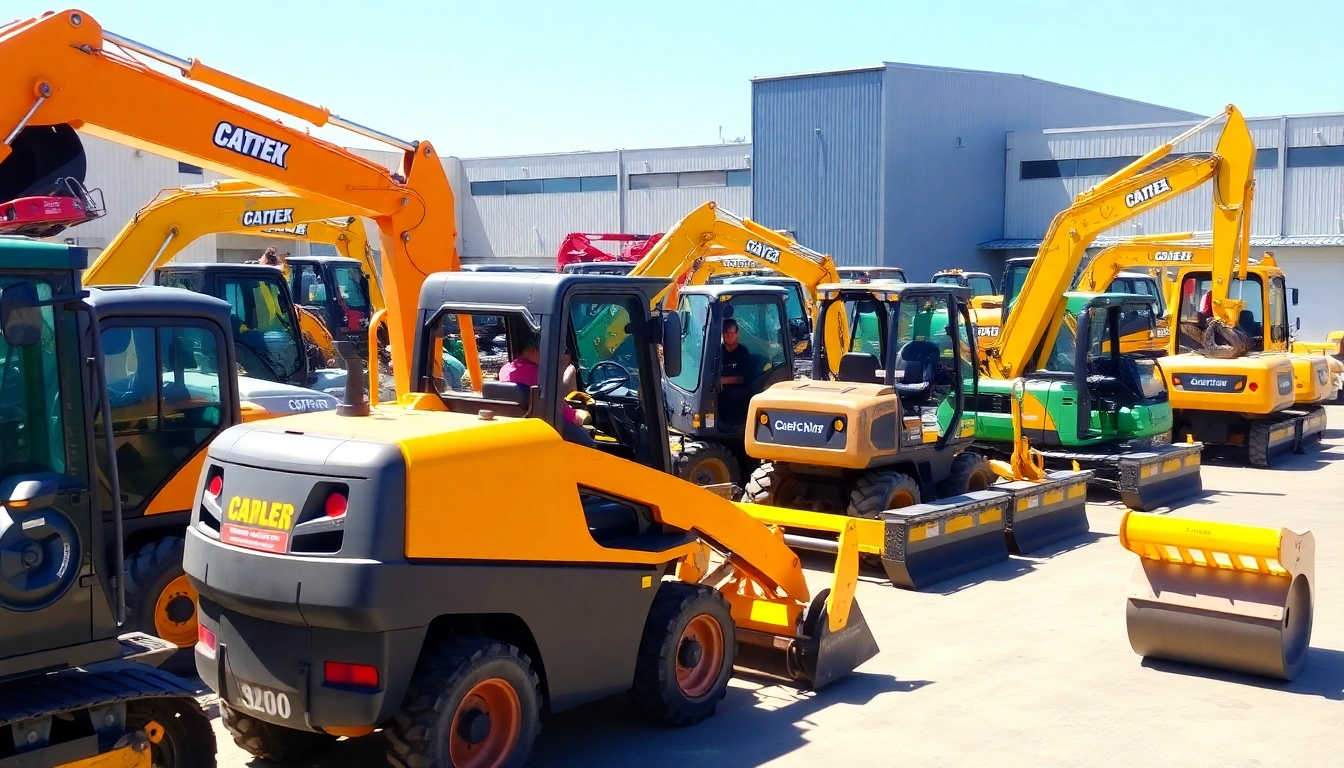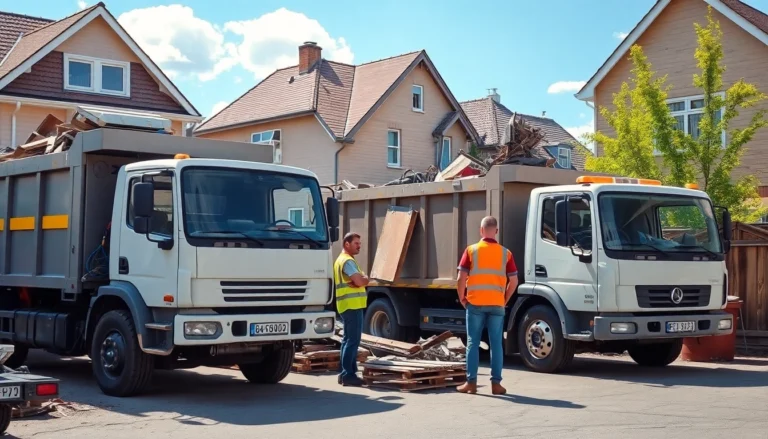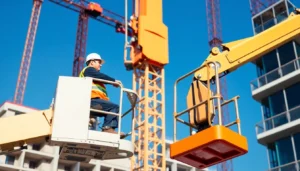Unlocking Construction Success in the UK: An In-Depth Guide to Construction Equipment Rental
In today’s dynamic construction industry across the UK, efficiency, safety, and cost management are more critical than ever. One of the key strategies driving these factors is the effective utilization of construction equipment rental. Instead of investing heavily in expensive machinery, many project managers and contractors are turning to rental solutions to meet their equipment needs flexibly and reliably. This comprehensive guide explores the advantages, types, selection criteria, best practices, and future trends related to construction equipment rental, providing valuable insights to elevate your project execution and budget management.
Understanding Construction Equipment Rental: Benefits and Key Features
Advantages over Purchasing: Cost, Flexibility, and Maintenance
Choosing to rent construction equipment offers a multitude of strategic advantages over outright purchasing. Financially, renting eliminates significant upfront capital expenditure, allowing companies to allocate funds more effectively. According to industry reports, rental costs are often substantially lower than ownership when calibrated against the total lifecycle expenses of machinery, which include maintenance, storage, insurance, and depreciation.
Flexibility is another vital benefit. Construction projects vary in scope and duration, and rental agreements can be customized to match project timelines, whether short-term or long-term. This adaptability ensures that firms always have the right equipment at the right time without tying up capital in idle assets.
Maintenance and technological obsolescence are also mitigated through rentals. Rental providers typically handle maintenance, repairs, and upgrades, ensuring equipment is in optimal condition and compliant with latest safety standards and technological advancements. For example, renting from a trusted supplier guarantees access to modern machinery equipped with the latest efficiency features, which can significantly enhance productivity and safety.
Types of Construction Equipment Available for Rent
The range of equipment available for construction rental in the UK is extensive, designed to serve diverse construction activities. Key categories include:
- Earthmoving Equipment: Excavators, bulldozers, backhoes, and loaders.
- Compaction Machinery: Plate compactors, rollers, vibratory rammers.
- Concrete Equipment: Mixers, pumps, power floats, poker vibrators.
- Access Equipment: Scaffolding, cherry pickers, boom lifts.
- Specialized Machinery: Demolition tools, trenchers, cranes.
Major rental providers like Boels Rental and SER offer comprehensive equipment portfolios to support everything from foundational excavations to finishing touches on construction sites.
How Rental Solutions Ensure Project Efficiency and Safety
Using rental equipment positively impacts overall project efficiency. Modern machinery often includes the latest safety features, reducing potential hazards. Rental companies also provide operator training and maintenance support, ensuring that equipment is used correctly and safely, which minimizes downtime and accident risks.
Moreover, rental firms often offer flexible rental periods aligned with project phases, allowing companies to adapt quickly to unforeseen changes, delays, or scope adjustments—keeping projects on schedule and within budget.
Choosing the Right Construction Equipment Rental Partner in the UK
Factors to Consider: Range, Reliability, and Customer Support
Selecting a reputable rental partner is crucial. The equipment range should be broad enough to cover all project requirements, from small-scale renovations to large infrastructure development. Reliability hinges on the provider’s track record for maintaining quality and timely delivery. Excellent customer support, including responsive communication and technical assistance, can be the difference between a smooth operation and costly delays.
Evaluating Equipment Quality and Modernization
Ensure the equipment is modern, well-maintained, and complies with UK safety standards. Request documentation or proof of recent upgrades and maintenance schedules. Leading providers regularly update their fleets with newer models that feature enhanced safety, efficiency, and environmental performance, vital for compliance and sustainability goals.
Understanding Rental Agreements and Pricing Structures
Rental contracts should be transparent, specifying costs, included services, maintenance responsibilities, and terms for damages. Understand the pricing model—whether it’s a daily, weekly, or project-based rate—and inquire about additional charges such as delivery, pick-up, or late returns. Negotiate flexible terms tailored to your project timelines to avoid unexpected expenses.
Best Practices for Using Construction Equipment Rental Effectively
Preparation and Planning for Equipment Use
Thorough planning is essential. Conduct site assessments to determine specific equipment needs, considering project scope, ground conditions, and logistics. Schedule equipment delivery to align with project phases and ensure availability when required. Pre-operation inspections and staff training also mitigate risks and promote safety.
Ensuring Proper Operation and Safety Compliance
Operators must be trained and certified where necessary to operate rented machinery safely. Adhere to UK health and safety regulations, including PPE usage, site hazard assessments, and adherence to manufacturer guidelines. Regular inspections and maintenance during rental periods prevent breakdowns and accidents. For example, routine checks of hydraulic systems or brake functions prevent costly failures and safeguard workers.
Maximizing Equipment Longevity and Return on Investment
Proper handling, storage, and routine maintenance extend equipment life and preserve operational efficiency. Capture detailed logs of usage and maintenance activities to track performance and identify potential issues early. Post-project, ensure equipment is cleaned and inspected to prevent damage charges, facilitating future rentals or resale opportunities.
Case Studies: Successful Construction Projects Using Equipment Rental
Commercial Developments with Rental Machinery
In major urban projects, rental equipment has played a pivotal role. For example, a commercial skyscraper in London utilized excavators and cranes rented from regional providers, enabling swift site setup and efficient material handling without significant capital investment. The flexibility to scale equipment up or down responded effectively to project demands, reducing downtime and costs.
Industrial and Infrastructure Projects
Infrastructure projects like railways or highway expansion benefit from specialized rental machinery such as trenchers and large-scale rollers. These projects often require heavy-duty, high-capacity equipment that is only practical to rent. Timely access to such equipment, alongside expert support, accelerates project timelines and ensures compliance with safety standards.
Small-Scale Renovations and Local Construction
Even small contractors and local builders leverage rental equipment for budget control and efficiency. Renting compactors, mixers, and scaffolding allows smaller teams to undertake diverse tasks efficiently, ensuring quality outcomes within tight schedules, and reducing overhead costs associated with equipment ownership.
The Future of Construction Equipment Rental in the UK
Emerging Technologies and Digital Booking Platforms
The digitization of equipment rental platforms revolutionizes access and management. Real-time online booking, GPS tracking, and remote diagnostics improve operational transparency and responsiveness. Platforms integrated with project management tools streamline equipment scheduling and usage analytics, leading to smarter resource allocation.
Environmental Impact and Sustainable Rental Options
Green construction practices are influencing the rental market. Suppliers increasingly offer eco-friendly machinery with lower emissions and energy-efficient features. Rental companies also promote sustainable practices through equipment reuse, recycling, and offering electric-powered machinery to reduce carbon footprints, aligning with UK’s climate commitments.
Market Trends and Growth Opportunities
Demand for rental equipment is projected to grow with increased infrastructure investment and urban development resulting from government initiatives like City Deals and private sector investments. The sector is also witnessing innovation in telematics, AI-driven maintenance, and hybrid machinery, which collectively increase operational efficiency and safety.



















